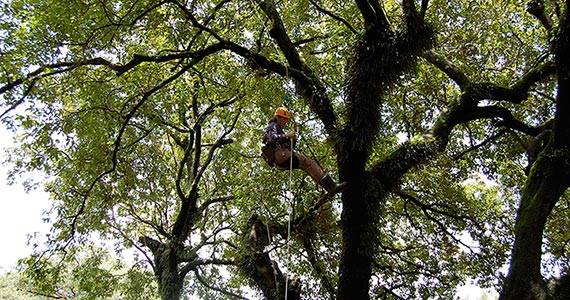“Does religious management mitigate the socio-ecological drivers of forest change in sacred groves of northern Ethiopia?”
Catherine Cardelús (Biology), Eliza Kent (Religion), Peter Klepeis and Peter Scull (Geography), along with Margaret Lowman (NC Museum of Natural Sciences & NC State University) and Alemayehu Wassie Eshete (Bahir Dar University, Ethiopia) have been awarded a one-year, $90,000 grant for their project “Does religious management mitigate the socio-ecological drivers of forest change in sacred groves of northern Ethiopia?” Some forests in northern Ethiopia are maintained as sacred sites around Christian Orthodox Tewahido Churches. Some of these church groves date from the 4th century AD; however, many are diminishing in size and diversity because of pressures from farming and gathering of firewood. In a rare collaboration across the natural sciences, social sciences, and humanities, the funded research team and their students will collaborate closely with Ethiopian colleagues and local communities to assess whether and how cultural and religious stewardship of the sacred forests reduces negative impacts on these compromised ecosystems. “This team represents an exciting collaboration across many disciplines. The depth of understanding to be gained by their collaborative approach is immense and coupled with close connections with the people most invested in the sacred forests, this work can have a powerful impact on the fate of these unique habitats,” said Dr. Damhnait McHugh, Director of the Picker Interdisciplinary Science Institute.
